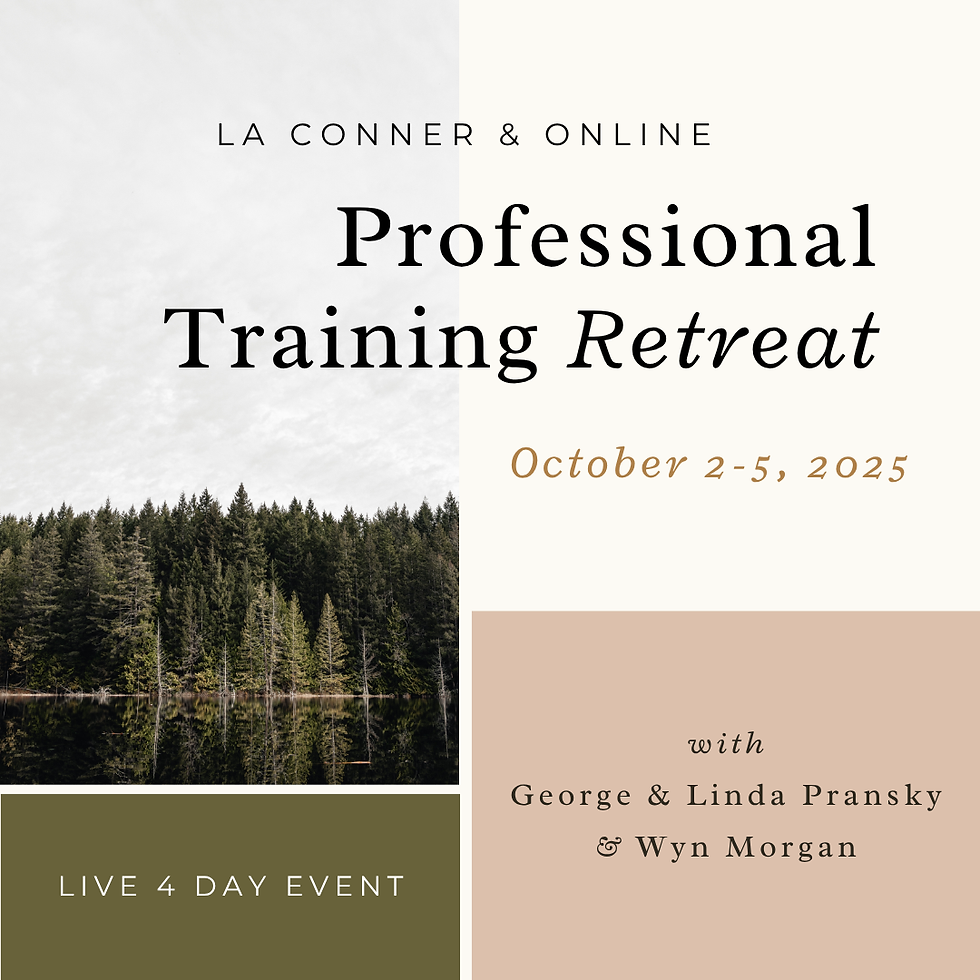Coaching from a Quiet Mind
- Aug 27, 2025
- 2 min read

What Really Makes the Difference in a Coaching Conversation?
Most coaches, at some point, wonder: Am I doing enough? Am I saying the right thing? Am I helping?
It’s a natural impulse—to want to guide, fix, or offer something helpful. But the most impactful shifts in a client’s life rarely come from a perfect insight or technique. They come from something much simpler: The feeling you bring into the conversation.
Insight Doesn’t Come from Pressure
When a coach is in their head—trying to get it right, trying to fix a client, trying to sound wise—their mind gets tight. Narrow. Heavy. From that state, it’s hard to truly listen. Hard to connect. And hard for insight to emerge—for either person.
But when your mind is quiet, open, and present, something entirely different happens. You hear more. You see more. You’re not trying to steer the client—you’re alongside them, open to what might arise.
And often, that’s exactly what allows something new to show up.
The Feeling Behind the Words
You don’t need to say the perfect thing. Most clients won’t remember your exact words anyway.
What they’ll remember is how they felt in your presence.
When a client feels safe, respected, and unjudged—when they sense that you’re not trying to fix them or rush their process—they naturally begin to settle. And in that settling, their own clarity begins to surface.
You didn’t “deliver” an insight. But one came anyway.
The Coach’s Mindset Matters
This is why your own grounding matters so much more than your knowledge or skillset.
The less preoccupied you are with how the session is going, the more space you have for real connection. The more you’re in touch with your own wellbeing, the more your client feels their own.
It’s not about trying to create an experience—it’s about being real, being settled, and trusting that’s enough.
What’s Already There
We’re not suggesting you stop learning or reflecting on your work. But it’s helpful to see that the most powerful coaching doesn’t come from pressure or effort—it comes from presence.
You already have everything you need to be an effective coach. When your mind is clear, you naturally connect. You naturally respond. You naturally leave space for the client’s wisdom to come forward.
You don’t have to carry the session. You just have to show up.
If You’re a Coach Who Wants to Go Deeper...
Our upcoming Professional Training Retreat (October 2–5, 2025) is a space to deepen this understanding—not by learning more information, but by spending time in the kind of feeling that brings clarity and impact to your work.
You’ll hear directly from George and Linda Pransky, Wyn Morgan and Erika Bugbee and engage in open discussions with fellow coaches and practitioners. You'll return to your work with a quieter mind—and a deeper trust in the process.
Whether or not you join us this fall, we hope this is your reminder: You don’t need to try harder. You just need to see what's already there.








